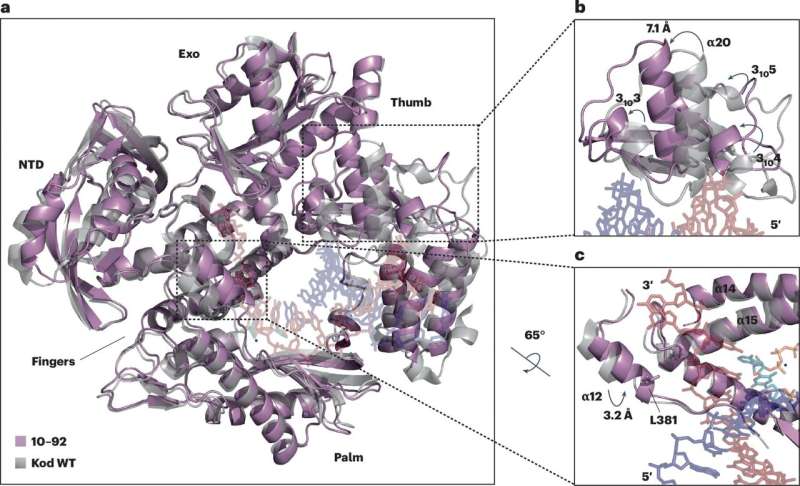Researchers at the University of California, Irvine have engineered a groundbreaking enzyme that can produce a synthetic genetic material called threose nucleic acid (TNA). This landmark achievement in synthetic biology could lead to the development of more powerful and precise therapeutic options for treating a range of diseases, from cancer to autoimmune disorders and infectious diseases.

Unlocking the Potential of Synthetic Genetic Material
The research team, led by Professor John Chaput of UC Irvine, has engineered an enzyme called 10-92 that can efficiently synthesize TNA, a genetic material that is more stable than DNA. This breakthrough represents a significant advancement in the field of synthetic biology, as it brings us closer to the capabilities of natural DNA synthesis.
Unlike DNA, TNA is inherently more resilient to enzymatic and chemical degradation, making it an ideal candidate for the development of innovative therapeutic treatments. The 10-92 TNA polymerase, which was created using a technique called homologous recombination, facilitates the synthesis of artificial chains of TNA, opening up exciting possibilities for new therapeutic applications.
Advancing Therapeutic Frontiers with TNA
The ability to synthesize TNA has the potential to address the limitations of current drug development approaches, such as the challenges associated with antibodies, including poor tissue penetration. TNA’s unique properties, such as its biostability, make it a promising candidate for the development of therapeutic aptamers – a class of drugs that bind to target molecules with high specificity.
These synthetic TNA-based therapies could have a significant impact on human health, addressing a wide range of diseases, including cancer, autoimmune disorders, metabolic conditions, and infectious diseases. The research team’s work represents a major milestone in the evolution of synthetic biology, paving the way for the discovery of groundbreaking new treatments.
Towards a Future of Personalized and Precise Therapeutics
The development of the 10-92 TNA polymerase is a testament to the power of directed evolution and homologous recombination, techniques that have enabled the researchers to create an enzyme that is within the range of natural enzymes in terms of activity and efficiency.
This advancement not only highlights the potential of synthetic genetic materials but also underscores the importance of continued innovation in the field of biotechnology. As we move forward, the ability to engineer enzymes that facilitate the discovery of new therapeutic approaches could have a profound impact on the future of medicine, leading to more personalized and precise treatments that address the limitations of current drug development methods.
